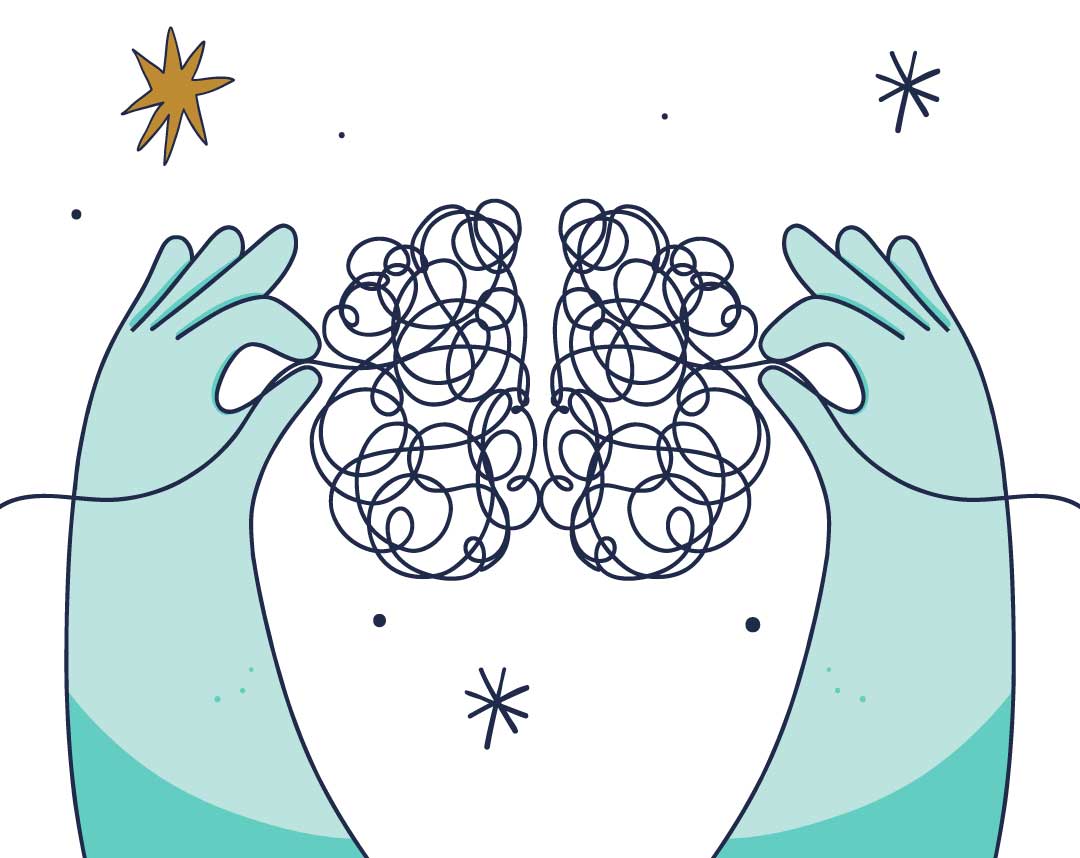How I help
I work alongside people when they need support
Our minds are remarkable. They can do many clever things but they can also trap us in stories about ourselves and the world, or keep us unnecessarily in the past or the future. We need to be able to move our attention flexibly between the past, future, and present. After all it’s only now that we can do something to help us reach our goals.
My aim is to help you make space for painful thoughts and feelings while you build the life you want. I will share compassionate, research-backed strategies and ideas with you to reduce your suffering; to create a full and meaningful life; to live more peacefully with your mind.
When we meet, I’ll take the time to listen to you carefully. Together, we’ll work out what is troubling you. One-to-one or in a group on a course, I will explain how we can work together.


I work with adults, teenagers, children and families
I can help you one-to-one or in a group on a course. I specialise in parenting, trauma and abuse, teenagers, children, depression and anxiety.
Often the most effective therapies for teenagers and children is to work with their parents. If you’re a parent, I can help you support your children, or I can help you address the challenges you’re experiencing in your relationship with your children.
Different approaches suit different situations
There isn’t a one-size-fits-all-approach to therapy. Our time will focus on you and suit your specific needs and concerns. I have many strategies and ideas I can share with you.

Acceptance and Commitment Therapy
Acceptance and Commitment Therapy (ACT) helps you pursue a full meaningful life while accepting the pain that inevitably goes with it. Emotional pain is a normal and unavoidable part of being human. Usually it is the struggle to avoid painful thoughts and feelings that leads to suffering. ACT is literally about taking action: accepting what you can’t change and committing to what you can.

Eye Movement Desensitisation and Reprocessing
Eye Movement Desensitisation and Reprocessing (EMDR) helps reduce the emotional pain associated with trauma. When people experience trauma or hardship without adequate support at the time, the painful memory often becomes a burden they carry until they find the time, story, person or experience that helps them resolve what happened and to settle its after-effects.

Compassion Focussed Therapy
Compassion Focussed Therapy (CFT) helps people cultivate self-compassion and compassion towards others, which both help regulate mood and lead to feelings of safety, self-acceptance, and comfort. Developing compassion is especially useful when we struggle with high levels of shame and self-criticism.
I can work with you one-to-one or in a group
One-to-one therapy
Therapy is a place where you can be yourself, meet yourself, and learn about yourself. In one-to-one therapy we can focus on your concerns, tailoring our work together to meet your specific goals.
Find out more
Group courses
Each term I offer two courses: Your Parenting ACT is specifically for parents. ACT for Everybody is for adults struggling with their thoughts and feelings, or with just being human.
Find out more
Common Questions
I’m nervous about starting therapy. Is that normal?
It’s normal to feel nervous about meeting a psychologist. It can be hard to talk about your feelings out loud and to ask for help with our challenges and burdens. This feeling usually settles after we’ve met.
Therapy is a place to be yourself. You can come just as you are, bringing all your thoughts and feelings with you.
How do I know if you are the right therapist for me?
Take your time to explore my website. If you think I might be a good fit but you need to know more, you can always email me.
First sessions are like an experiment. You’ll be able to see what it’s like to work with me and tell me what’s troubling you. Together we can work out how I can best help you. What’s most important to me is that you find someone who is the right fit for you. If my approach doesn’t suit you, I can recommend some other psychologists I know.
What if I don't want to talk about something?
It’s up to you what we talk about. It can feel hard to talk about painful things and it’s normal to take time to share your story with someone you don’t know. But then again, talking about painful things can make your life easier. Together we’ll work out how to pace our work together so that it feels manageable for you.
It helps to tell me if you feel nervous about something because then we can talk about that too. You are welcome to share any feeling, including your feelings about how you feel!
Does what we talk about in therapy remain confidential?
You might worry that something you say in therapy could be shared with other people. I highly respect your privacy and value your trust so you can tell me anything without fear of that information being shared. Unless someone is in danger, whatever you tell me is totally private and confidential. If you have specific questions about confidentiality, please let me know.
How long will therapy take?
Any session, including the first session, is for one hour. We can decide together how often to meet. Meeting weekly means we can keep up the momentum. Meeting fortnightly or monthly allows more time in between for you to practice the ideas we’ve talked about in a previous session.
It’s difficult to predict how many sessions of therapy anyone will need. The complexity of your situation, how long you’ve experienced a difficulty, your goals and other factors can all impact how many sessions will be most helpful. Some of my clients find that 3 to 6 sessions are enough, while others choose longer-term therapy.
What can I expect during the first session?
You can think of the first session as a chance for us to meet each other. Once I understand what you’d like help with, I can explain how I can help. I’ll invite you to share more about yourself. We can also talk about what’s worked or not worked for you in the past. You can ask me questions at any time. You might be curious about my experience or how future sessions might work.
The most important part of the first session is to experience what therapy is like with me. I hope you will feel welcome, accepted, and understood. Then you can decide if you’d like to meet again.
What’s the difference between a psychologist and a psychiatrist?
Psychologists study at university for six to nine years, specialising in behavioural science. Clinical psychologists have had specialist training in how people’s feelings, actions, thoughts, experiences and contexts affect how they live and the struggles they have.
Psychiatrists train first as doctors and then complete extra training in mental health. Psychiatrists are not trained to undertake cognitive assessments. In Aotearoa psychiatrists tend to focus on prescribing medication.
How long is a session?
Sessions are up to one hour long unless we agree on different amount of time.
Do I need a referral from my doctor to see a psychologist?
No, you don’t need a referral, but it can be helpful to tell your doctor that you’re working with me if you’ve discussed your difficulties with them.
